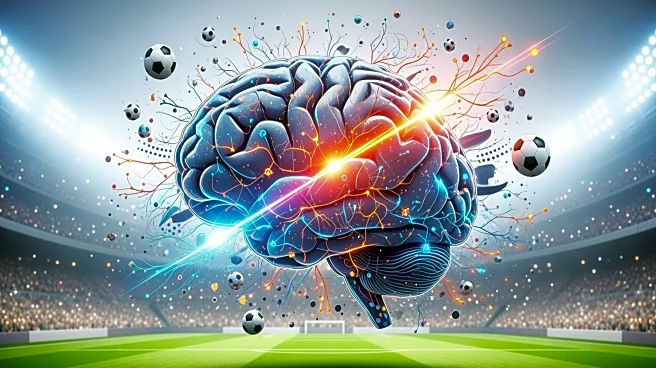What's Happening?
A study published in Radiology explores the brain activity of soccer fans during matches, revealing how neural circuits trigger strong emotional reactions. Researchers used functional MRI to scan the brains
of 60 male soccer fans, finding that areas associated with reward and cognitive control are activated differently depending on whether their team wins or loses. The study highlights how rivalry intensifies emotional responses, with significant victories amplifying reward circuitry and defeats suppressing cognitive control. This research provides insights into the neurobiological mechanisms of social identity and emotional processing in competitive settings.
Why It's Important?
Understanding the brain mechanisms behind sports fanaticism can inform strategies for managing crowd behavior and emotional responses at events. The study suggests that the same neural patterns observed in sports fans may apply to other forms of fanaticism, including political and sectarian conflicts. By identifying how early life experiences shape these emotional circuits, the research underscores the importance of protecting childhood development to prevent fanaticism and its associated harms. This knowledge could be crucial in developing communication strategies and interventions to reduce polarization and promote social cohesion.










